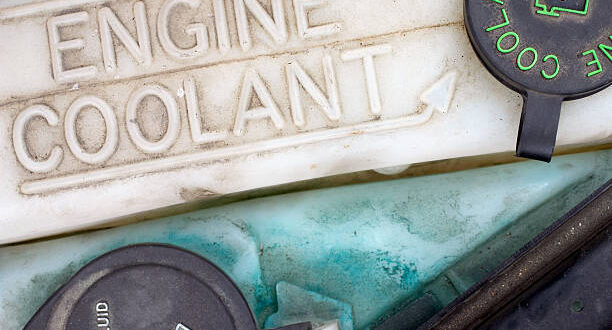An essential fluid that runs through your car’s radiator and engine to avoid overheating and metal component damage is called coolant. Additionally, coolant keeps your engine and engine components from corroding or rusting. Even though you haven’t added or emptied any coolant recently, you could occasionally discover that your coolant level is low. This indicates mysterious coolant loss, which might have a number of reasons and effects. We’ll look at a few of the typical causes of coolant loss in this article, along with how to identify, address, and avoid them in the future.
CAUSES OF COOLANT LOSS
A cooling system leak is the most common cause of coolant loss. The reservoir, water pump, thermostat, heater core, hoses, and radiator are some of the components that make up the cooling system. Any of these components may get holes, cracks, or loose connections that let coolant leak out. A few signs of a coolant leak include:
- Insufficient coolant in the reservoir
- Puddles of coolant underneath the car
- Steam or white smoke coming from the engine
- Pleasant smell like candy coming from the car’s interior or engine
- Temperature gauge or engine overheating
- Less effectiveness of the heater
Coolant evaporation is another potential reason for coolant loss. Poor quality, low pressure, and high temperatures can all cause coolant to evaporate. Additionally, if the coolant cap is damaged or not tightened correctly, evaporation may happen. Here are a few signs of coolant evaporation:
- Not enough coolant in the reservoir
- No obvious leaks or coolant indications
- Overheating engine or temperature gauge
- Decreased efficiency of the cooling system
A blown head gasket is a less often but more significant cause of coolant loss. The head gasket acts as a seal to keep the coolant channels and combustion chambers apart between the engine block and the cylinder head. Coolant may seep into the cylinders and combine with the engine oil in the event that the head gasket fails, or vice versa. The engine and other parts may sustain serious damage as a result of this. The following are a few signs of a burst head gasket:
- Insufficient coolant in the reservoir
- Steam or white smoke coming from the engine
- Foamy or milky engine oil
- Foam or bubbles in the coolant
- Decrease in performance and efficiency
- Overheating engine
SOLUTION FOR COOLANT LOSS
The cause and seriousness of the issue determine the best course of action for coolant loss. Checking the coolant level and topping it off if necessary is usually the first thing to do. But keep in mind that this is really a temporary fix care. Additionally, you want to check the cooling system for any indications of damage, leaks, or cracks. Should you discover any, you need to fix or swap out the malfunctioning component right away. To find the leak’s source, you can use a UV light, a dye test, or a pressure tester. For small leaks, you can also use sealants or stop leak products; however, these are not advised for large leaks or long-term use.
If evaporation is the cause of the coolant loss, you should ensure that the coolant cap is securely fastened and in good shape. Additionally, make sure the coolant satisfies the manufacturer’s criteria by examining its quality and concentration. To find the coolant’s specific gravity or freezing point, use a hydrometer or refractometer. Additionally, as advised by the handbook for your vehicle, you ought to flush and replenish the coolant on a regular basis.
If a blown head gasket is the cause of the coolant loss, you should get professional assistance right away. A burst head gasket is a major problem that requires costly repairs or engine replacement. Driving a car with a burst head gasket might result in more damage and raise the possibility of an explosion or fire. A blown head gasket can be identified by a chemical test, a leak down test, or a compression test. You can reach out to a qualified mechanic by following this link: https://www.spotdem.com/find-an-expert-mechanic-near-me/
IMPORTANCE OF COOLANTS
For your car engine to run smoothly and last a long time, coolants are necessary. They guard against cavitation, corrosion, and overheating. They help lubricate the cooling system’s other moving components, including the water pump. As a result, you should always keep your car’s coolant at the proper level, kind, and quality. Additionally, you should keep an eye on the cooling system’s condition and address any issues as soon as they appear. By doing this, you can prevent expensive repairs and breakdowns as well as unexpected coolant loss.
I hope this blog helps you comprehend the causes of unexpected coolant loss and its remedies. Please feel free to post any comments or questions in the space provided below.
 Spot Dem Everything About Cars
Spot Dem Everything About Cars



